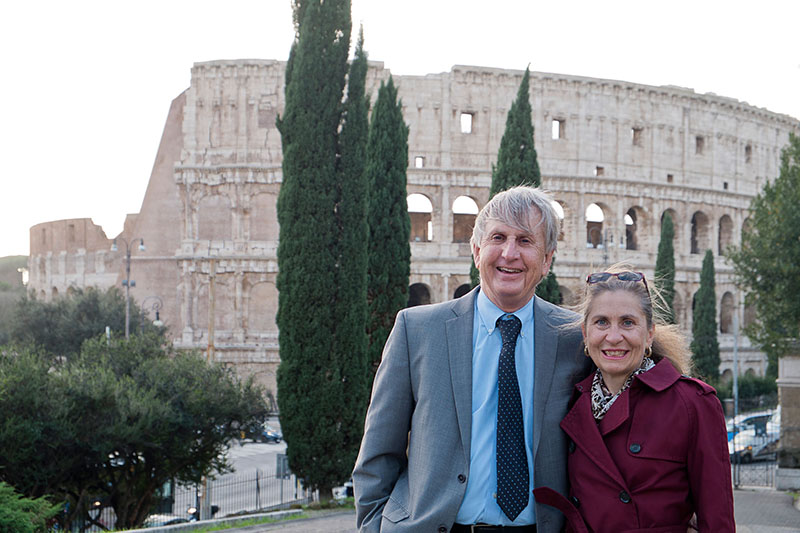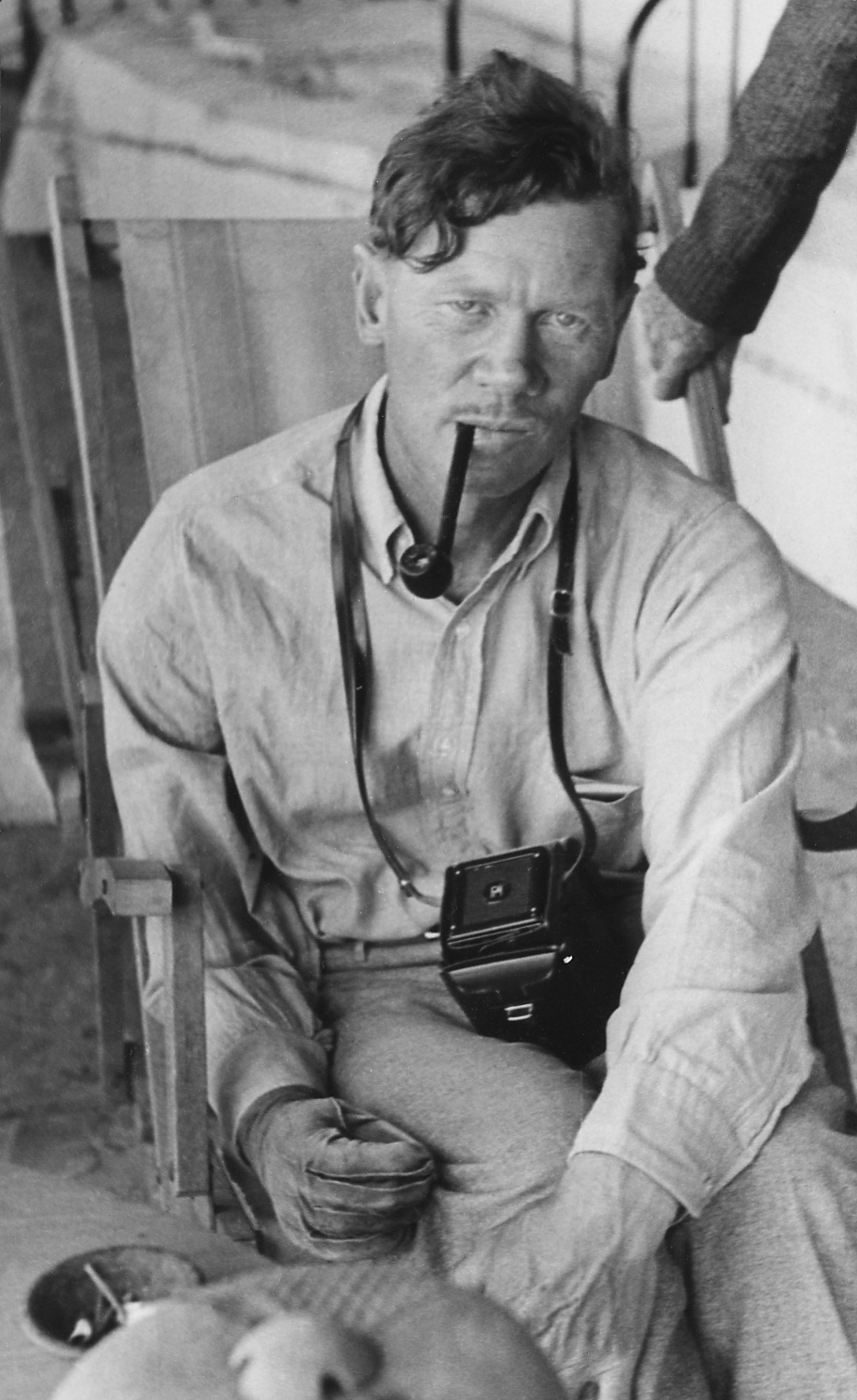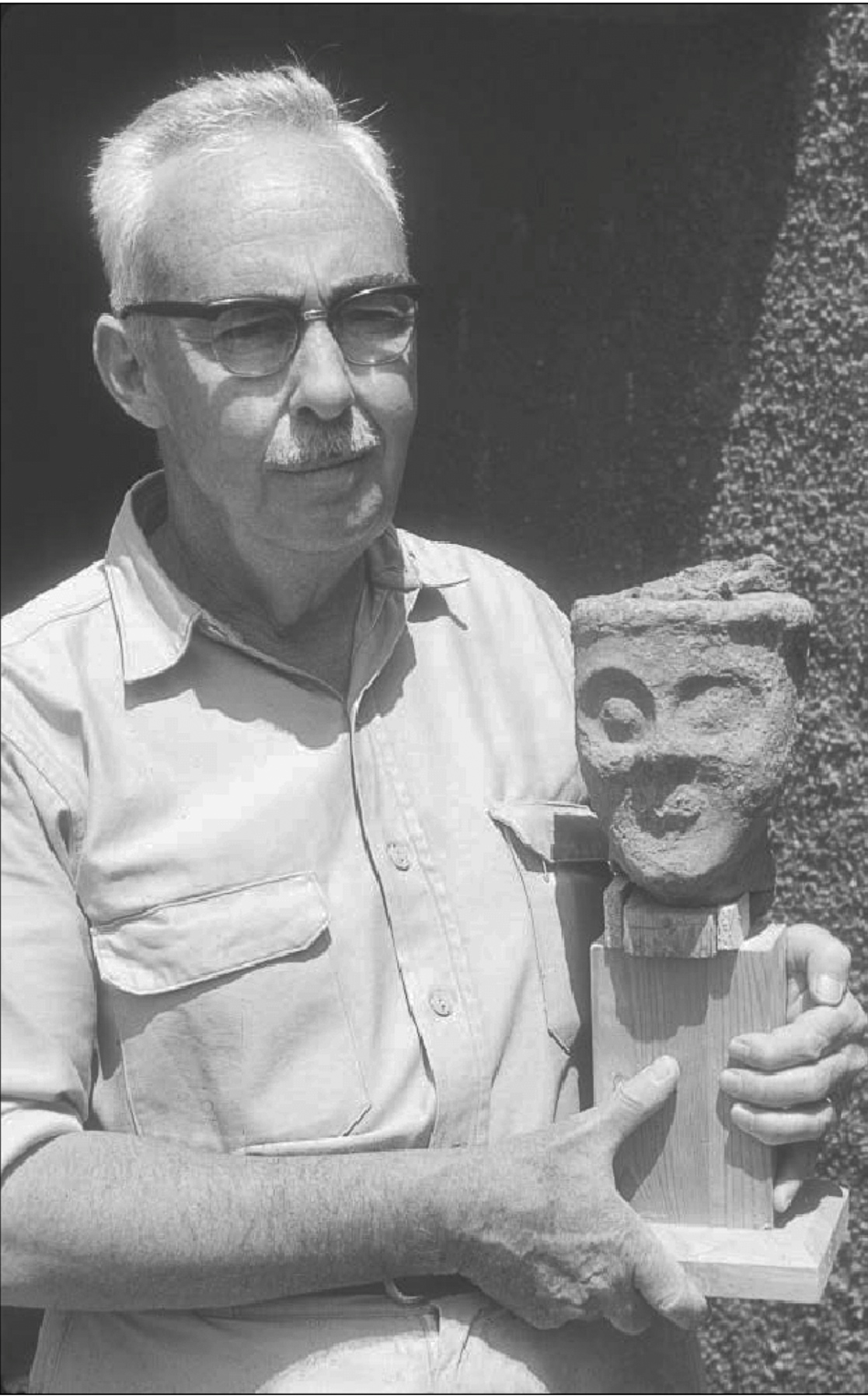
UC professor of Classics tapped for prestigious honorary society
Researcher Jack Davis joins ranks with historic and current luminaries
The University of Cincinnati’s Jack Davis, Carl W. Blegen Professor of Greek archaeology in the Department of Classics, has been elected to the prestigious American Academy of Arts and Sciences.
With this honor, Davis joins the ranks of luminaries such as former U.S. President John Adams (elected in 1780), language scholar Noah Webster (of dictionary fame, tapped in 1799), and more currently playwright Lin-Manuel Miranda, and actor and philanthropist George Clooney.
Begun just four years after the Declaration of Independence was signed, when the United States was comprised of 13 colonies, the academy was established by founding fathers in Cambridge, Mass.
Since its inception in 1780, the academy has elected more than 14,600 members, all world leaders in the arts and sciences, business, philanthropy and public affairs — among them U.S. Supreme Court justices and winners of the Pulitzer Prize.
'To advance public good'

UC researchers Jack Davis and Sharon Stocker at the site of the Griffin Warrior dig in Pylos. Photo/Robert McCabe/UC Classics
"Anything I have personally accomplished is as much to the credit of my colleagues in Classics, staff and faculty as to me alone, and especially to Sharon Stocker, my co-director at Pylos,” Davis said of the honor. “All of us belong to a team and enjoy an environment that is particularly supportive to research and teaching innovation.”
Of the 2024 inductees, president of the academy David Oxtoby said, “We honor these artists, scholars, scientists and leaders in the public, non-profit and private sectors for the curiosity, creativity and courage required to reach new heights ... to advance the public good.”
Elected members join with other experts to explore societal challenges and recommend solutions to advance the public good, according to the academy.
Groundbreaking research
Davis returned to UC in 1993 after completing his doctorate here in 1977. In his time at UC, he has been a pioneer in developing and applying anthropological and scientific methods in the study of the ancient Mediterranean world through explorations of the Greek Peloponnese, Greek islands and Albania.
His research has led to groundbreaking discoveries in Pylos, Greece. In 2015, he Stocker discovered the tomb of an ancient Greek leader, whom they called the “Griffin Warrior” for the mythological Griffin found on his burial plaque. Other artifacts at the 3,500-year-old grave included gold rings, a warrior’s seal and dagger, armor, coins and a sealstone hailed by Archaeology magazine as "a Bronze Age masterpiece."

Bovine gold ring discovered in the tomb of the Griffin Warrior by UC researchers Jack Davis and Sharon Stocker. Photo/ UC Classics
In 2019, Davis received a gold medal for distinguished archaeological achievement from the Archaeological Institute of America. It’s the institute’s highest honor. He was the third UC professor to be recognized by the world’s oldest and largest archaeological association.
In 2021, the president of Greece honored both Davis and Stocker with the "Commander of the Order of the Phoenix," one of the country’s most prestigious awards, for advancing our understanding of ancient Greece. The award was established in 1926 to recognize Greeks or foreigners who contribute to enhancing the stature of Greece in fields such as science, the arts or industry.
This year, Davis was also honored as UC’s 2024 Distinguished Research Professor of the Arts, Humanities, and Social Sciences, an annual award that recognizes the highest level of achievement and contributions at the university.


The American Academy of Arts and Sciences previously inducted UC Classics Professors Carl Blegen, left, and Jack Caskey. Photos/UC Classics
A tradition of scholarly excellence
Davis is the third UC faculty member to be tapped for election into the academy. Preceding him were professor Carl W. Blegen (elected in 1959), who rediscovered the Bronze Age Palace of Nestor, one of the oldest kingdoms in Greece and Europe. In 1980, John ‘Jack’ Caskey was elected to the academy for his exploration into excavations in the ancient settlements of Troy, Lerna and Keos.
All come from UC’s Classics department, a testimony to the strength of the program, says Davis.
“The caliber of our department has always been high since its establishment in 1920 and it remains so,” Davis said. “At the moment we are stronger than ever, with the addition of significant new faculty in all subfields of Classics.”

Discoveries by UC Classics Professor Jack Davis and Senior Research Associate Sharon Stocker have been reported around the world. Photo/Smithsonian
UC’s department of Classics has earned worldwide recognition for its advancements in research in Greece, and its Blegen Library is a destination for researchers domestic and abroad.
“It’s world-renowned,” said Barbara Burrell, associate professor of Classics in an interview with UC’s student newspaper The News Record. “That’s why we have foreign scholars coming here. They’re not going to Sackler Library in Oxford, or the Bibliothèque Nationale in Paris. They’re coming here.”
Davis predicts more innovative and groundbreaking scholarship coming out of UC’s Classics department.
“These are exciting times for our department as we face both old and new challenges in evolving academic environments,” he added. “We are particularly excited about new partnerships and exchanges, as we continue to expand the scope of our research and teaching beyond North America.”
With all the awards and accolades, is it time to settle back and rest on the laurels? Davis says not so fast--the research is ongoing.
“That is unlikely when there is so much that remains to be accomplished on our current excavations at Pylos and in regard to older departmental excavations on the island of Kea in Greece and in Albania. Our publication series reporting on Caskey’s excavations on Kea remains quite active.”
He adds: “In addition, we are making preparations for a massive museum exhibition of Mycenaean finds from our part of Greece that will open in winter of 2025 in Greece, before moving to the J. Paul Getty Villa in Malibu next summer. This exhibit and its impressive catalogue will represent the largest museum show of its kind ever to reach North America from Greece.”
Featured image at top: Award-winning UC Classics researchers Jack Davis and Sharon Stocker. Photo/UC Classics

Among the artifacts UC Professor Jack Davis and Senior Research Associate Sharon Stocker discovered at Pylos was a sealstone that featured an exquisite engraving of mortal combat featuring a slain soldier on the ground beneath a soldier wielding a sword and another with a spear that Archaeology magazine hailed as a Bronze Age masterpiece. Photo/UC Classics
Next Lives Here
The University of Cincinnati is leading public urban universities into a new era of innovation and impact. Our faculty, staff and students are saving lives, changing outcomes and bending the future in our city's direction. Next Lives Here.
